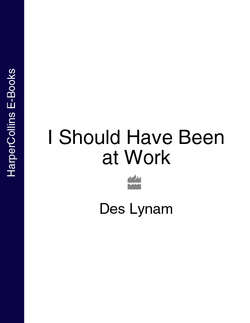Читать книгу I Should Have Been at Work - Des Lynam - Страница 13
7 GUN TROUBLE IN TEXAS
ОглавлениеMy ongoing love affair with boxing continued apace, and it was around this time that I covered Jim Watt’s period as the World lightweight champion. Jim had been a useful boxer in a domestic sense until joining the Terry Lawless stable. Lawless helped him hone his skills to international level and had the connections to steer him to the world title.
Jim was a hugely attractive proposition for those of us in the media. He was very articulate and gave great interviews and of course has gone on to become an outstanding broadcaster on the sport. One of his title defences took place in the open air at Rangers’ Ibrox stadium in Glasgow. His opponent was Howard Davis, the man who had been voted the outstanding boxer of the 1976 Olympic Games. Watt was too good for him though.
In 1981 I went to Houston, Texas to commentate on Pat Cowdell’s challenge for the World featherweight title held by the Mexican Salvador Sanchez. It was a tough call for Cowdell. Sanchez was considered by many experts to be the best ‘pound for pound’ fighter in the world at the time. A few days before the fight, I took a taxi from the airport to my hotel and noticed that the glass was missing in one of the side windows in the back of the car. It had been replaced by a piece of cardboard.
‘What happened to your window? I asked the driver.
‘Oh, some crazy guy is taking pot shots at cars in the city,’ the driver replied, seemingly unconcerned.
‘Have they arrested him? I enquired.
‘Nope, haven’t found him yet.’ I slunk down in the seat.
Later that evening it wasn’t the sniper’s gun I was worried about.
Suffering from jet lag, I had trouble getting to sleep but eventually nodded off with the light on. At around 3 a.m. I was awoken when the door to my room sprung open, held only by the security chain I had remembered to attach. Then, to my horror, a gun was poked through the gap and a voice said: ‘Please come to the door and open it.’ I thought, ‘This is it. I’m in a violent city and am about to be robbed at best, and maybe shot as well.’
I managed to get a few words out. ‘What the hell is going on?’
The voice replied. ‘This is hotel security. According to our records this room should be unoccupied.’ An accreditation badge was eased through the gap. The check-in receptionist had recorded that I was in another room. Her mistake could easily have resulted in a Lynam heart attack.
In the fight, Cowdell put up a valiant challenge before losing on points over fifteen rounds. Not long after, Sanchez was killed in a car accident.
I first came across Finbar Patrick (‘Barry’) McGuigan at the Commonwealth Games in Edmonton Canada in 1978. He was just seventeen years of age and boxing for Northern Ireland. This was an anomaly because Barry was actually from the Irish Republic and two years later he would compete in Moscow for the Irish Olympic team.
He was a sensation in Edmonton and made it all the way to the bantamweight final, in which he had to box a tough customs officer from Papua New Guinea called Tumat Sogolik. It was boy against mature man, but I called the fight narrowly for McGuigan. This was in the days before computer scoring came into amateur boxing. On television, Harry Carpenter felt that he hadn’t quite done enough. As it turned out, McGuigan got the decision and his old club coach in Northern Ireland rang him to tell him that I had called it his way. It was just my honest opinion at the time, but Barry became a fan of mine, as of course I did of him.
The Edmonton Commonwealth Games had been my second trip to Canada. I enjoyed some marvellous hospitality, especially from a petite and vivacious girl who was working at the Games. I seemed to fall on my feet at these major tournaments.
Once again Wogan was orchestrating the broadcasts from his studio in London and persuaded me to sing the ‘Londonderry Air’ (aka ‘Danny Boy’) live on the programme after McGuigan’s win. You would not have wanted to hear it.
On the flight home from Edmonton, a fellow commentator found himself seated between Mary Peters, the athletics gold medallist from the 1972 Olympics, and Anita Lonsborough, who had been Olympic champion in the swimming pool at the Rome Games in 1960. Both were travelling back in their pristine cream blazers provided by the BBC for the Games. Unfortunately my colleague had enjoyed a considerable amount of hospitality in the departure lounge, liberally topped up after boarding the aircraft, and proceeded to throw up. Two blazers and two gold medallists were despoiled in one ghastly moment. Embarrassed though he still is about it, he recently described it as ‘a record that will never be broken’.
